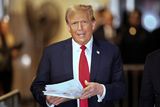Robert Fisk: We still haven’t grasped that this is war without frontiers
Isil was quick to understand that borders imposed by colonial powers 100 years ago have lost their meaning, says Robert Fisk. And in a borderless world, the days when we could fight foreign wars and be safe at home may be long gone
Belgian Abdelhamid Abaaoud, who has been identified by French authorities as the chief organiser of the Paris attacks
Early in 2014, Isil released one of its first videos. Largely unseen in Europe, it had neither the slick, cutting-edge professionalism of its later execution tapes nor the haunting "nasheed" music that accompanies most of its propaganda. Instead, a hand-held camera showed a bulldozer pushing down a rampart of sand that had marked the border between Iraq and Syria. As the machine destroyed the dirt revetment, the camera panned down to a handwritten poster lying in the sand. "End of Sykes-Picot", it said.
The bloody repercussions of the borders that the British and French diplomats, Mark Sykes and François Georges-Picot, drew in secret during World War I - originally giving Syria, Mount Lebanon and northern Iraq to the French, and Palestine, Transjordan and the rest of Iraq to the British - are known to every Arab, Christian and Muslim and, indeed, every Jew in the region. They eviscerated the governorates of the old dying Ottoman empire and created artificial nations in which borders, watchtowers and hills of sand separated tribes, families and peoples. They were an Anglo-French colonial production.
Join the Irish Independent WhatsApp channel
Stay up to date with all the latest news














